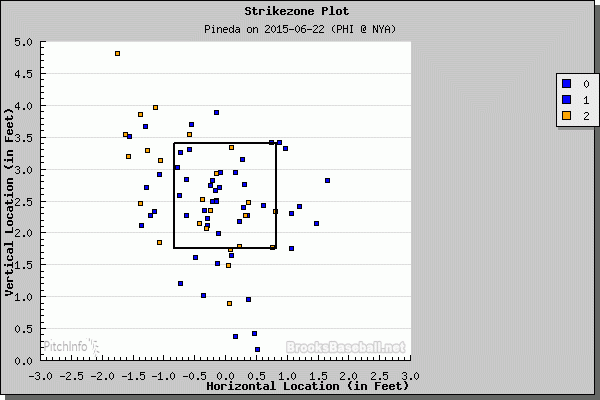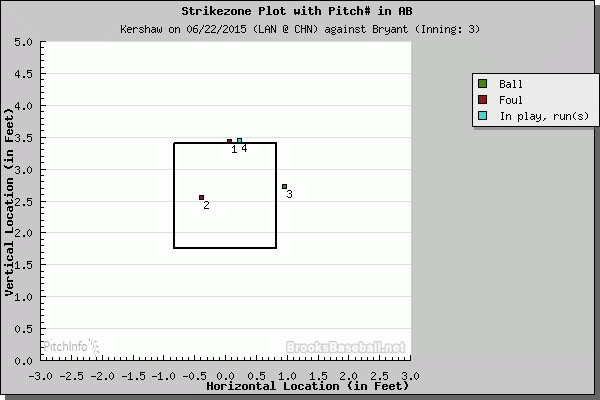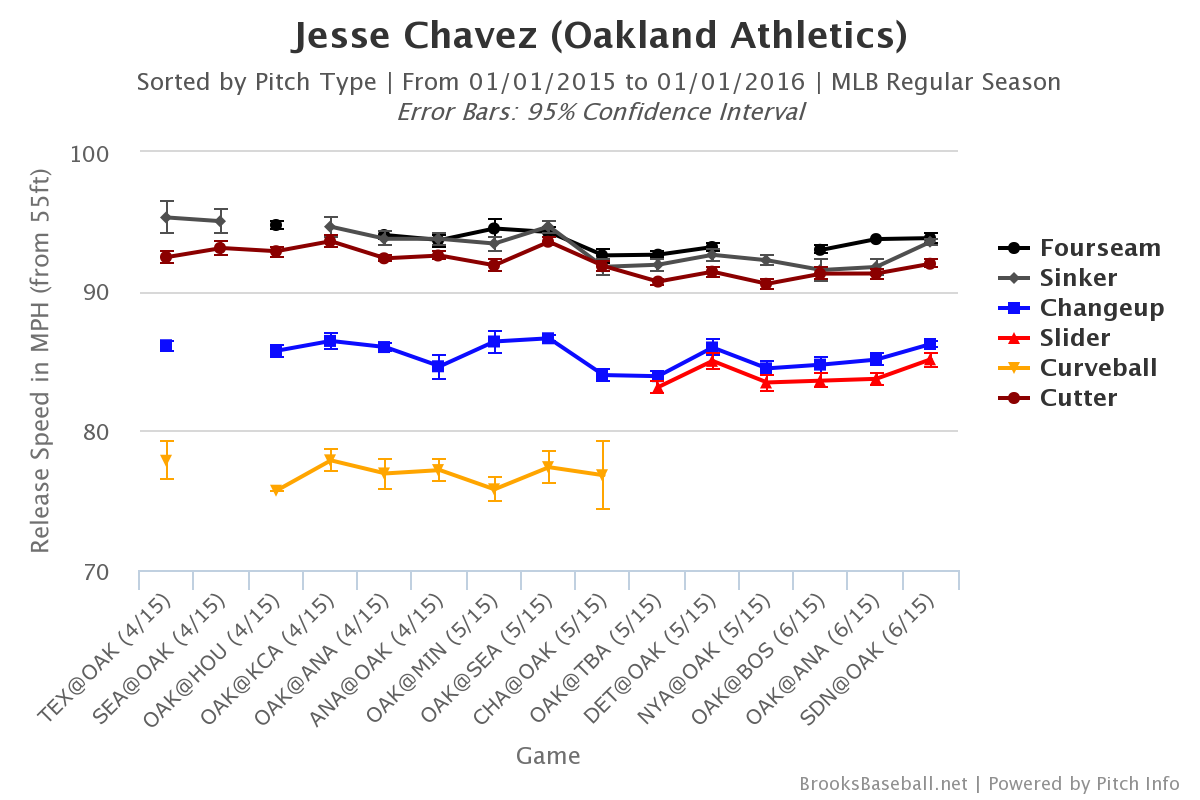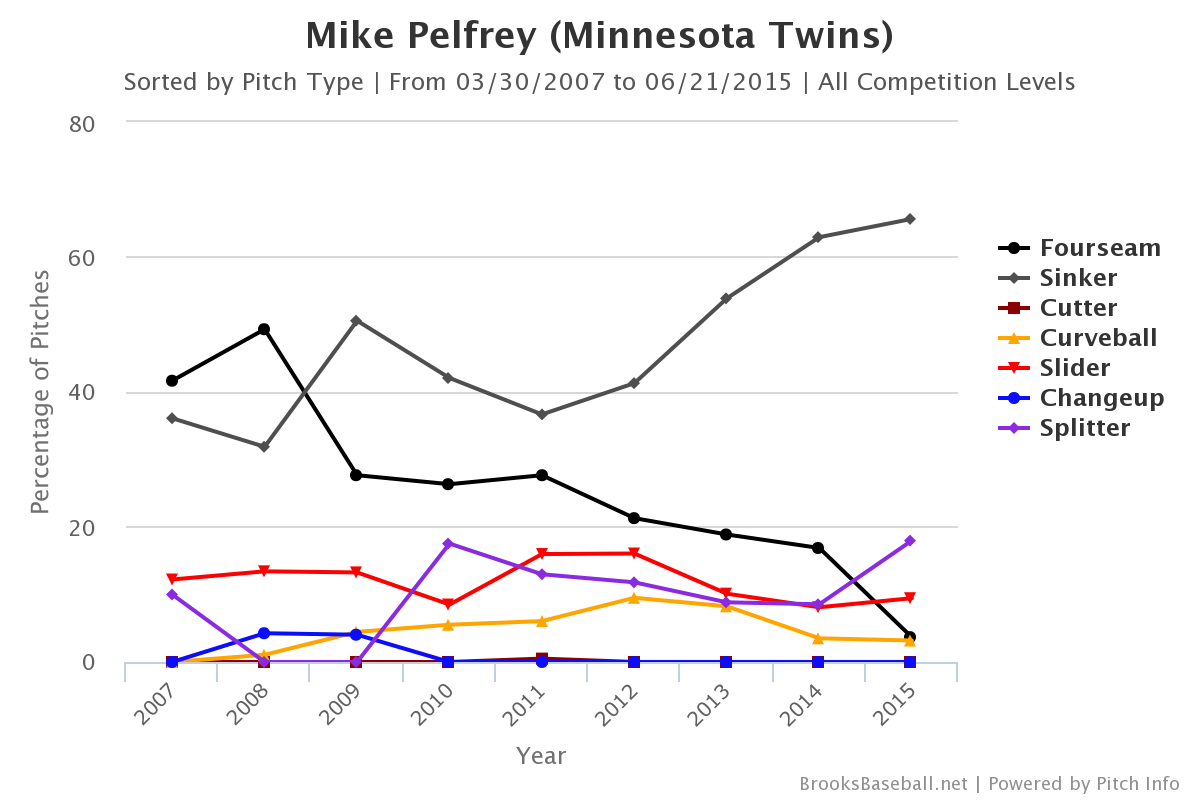The Monday Takeaway
New moms and dads, sitting in hospital rooms, weighing options for their newborns’ first names, sometimes find inspiration in their favorite baseball players past and present. Michaels and Mikes dot rosters across the league, from Brantley in Cleveland to Wacha in St. Louis, and that’s not to mention Schmidt in the Hall of Fame. Those who tuned in to watch the Yankees host the Phillies on Monday got to see Big Mike, Michael Pineda, toe the rubber for the home team in the Bronx.
But there are alternatives to that traditional spelling these days, none more inventive than Mayckol—as in Mayckol Guaipe, who was up briefly with the Mariners earlier this year. Somewhere in the middle of Michael and Mayckol on the creativity spectrum lies the given name of the Phillies’ third baseman. And if an outsize volume of Maikels was born in Greater Philadelphia Monday night, hospital staff need only look at the highlights to find out why.
Pineda retired the first two Phillies who batted Monday before Franco stepped to the plate and whacked a flat 1–2 slider into the left-center-field seats:
At 6-foot-7, 260 pounds, Pineda is an imposing presence on the mound with a bulldog mentality. When he’s on, he challenges hitters with his best stuff, namely a high-octane fastball and sharp slider, and dares them to bat behind in the count. Of the 185 that Pineda had buried into two-strike counts this year before Monday’s game, 87 (47 percent) had struck out.
Getting ahead wasn’t difficult for the 26-year-old last night: He threw 52 of 76 pitches for strikes and was generally around the zone. The problem was what happened when the count was in Pineda’s favor and the Phillies batters were on the ropes:

Lacking the put-away stuff usually at his disposal, Pineda was the deer in the headlights in the series opener, a role normally reserved for his opponents. He failed to finish another 1–2 offering in the third inning, with Ryan Howard at the plate, and the first baseman made Big Mike pay with a two-run single that put the visitors back in front:
According to the Baseball-Reference Play Index, only one Yankees starter in the last century had coughed up 11 or more hits and eight or more runs in 3 1/3 or fewer innings without recording a strikeout. That was Red Ruffing, way back on August 8, 1934. If you had Pineda as the next man to join him, come collect your prize. And if you also had Big Mike as the enemy starter in the Phillies’ first double-digit scoring output of 2015, well, that’s the parlay of the decade.
Big Mike was done for the night. Maikel wasn’t.
After the Yankees halved their deficit on a three-run shot by Brett Gardner, Franco plated runs nine and 10 for Philadelphia on a no-doubter off Chris Capuano:
On a night that featured 19 total runs on 32 hits, Maikel, not Big Mike, stole the show. He became his club’s first third baseman to turn in four hits, two homers, and five RBI in a game since Mike Schmidt. With Franco’s line up to .312/.353/.574 amid the team’s 25–47 swoon, Phillies fans might be witnessing the birth of their newest star.
Quick Hits from Monday
Joining Franco in the two-homer club Monday was Angels first baseman Albert Pujols. The resurgent 35-year-old had a .338/.413/1.215 batting line for the month of June. And that was before he did this
Those bombs weren’t enough for the Angels to top the Astros on Monday, though, because Houston rallied in the top of the eighth. An RBI single by Jason Castro and a run-scoring ground-rule double by Jose Altuve drew the visitors even at 3–3.
Pujols was the penultimate batter of the seventh, and since the insurance run he produced had gone to waste, the Halos would have to earn their lead back without him. Chad Qualls helped them out a bit by allowing a single to Erick Aybar, who then took second on a wild pitch. Joe Thatcher helped, too, by walking Matt Joyce and letting Aybar steal third on his watch. Needing two outs without a hit, A.J. Hinch called on Will Harris, perhaps the least hittable reliever in baseball to date, with just 10 knocks permitted in 33 innings. Mike Scioscia saw those numbers and raised Hinch and the Astros a safety squeeze:
***
Another two-homer day from a corner infielder? Sure, why not.
This one takes us back to the rookie section of the club, where Kris Bryant is doing ho-hum things like displaying a precocious eye and blasting off against the defending Cy Young Award–winner:

***
The lights went out in Tampa, too
So, the Rays attempted to win the game on the basepaths, committing serial theft on Drew Hutchison and Dioner Navarro’s watch. The Jays’ starting battery surrendered five steals in Hutchison’s five frames on the hill, a bit shocking, perhaps, because the right-hander had only given up four stolen bags combined entering Monday’s start. Forsythe added two to his big fly, and Kevin Kiermaier, Steven Souza Jr., and David DeJesus nabbed one apiece last night.
Stolen bases require runners and they put those runners in scoring position, which typically means runs can score without the benefit of homers. In other words, they might have enabled the Rays to overcome their 3–1 shortfall in the home run column. Except Kevin Cash’s squad went 4-for-18 with runners in scoring position and stranded a whopping 14 aboard.
That’s how the Jays became just the 16th team since 1948, per the Play Index, to win a game in which their starter was charged with nine or more hits and five or more steals.
The Defensive Plays of the Day
Rookies were all over the highlight reel Monday, so we’d be remiss to leave Byron Buxton out of this recap. The outfielder broke out of his early lull with three hits, including a double, at the dish. In case you think that’s all he can do, Buxton also hosed Melky Cabrera at the plate
What to Watch on Tuesday
Over the course of his big-league career, Jesse Chavez has used a curve as his primary breaking ball while occasionally toying with a slider. He might have preferred the hook because it’s less redundant with the cutter that’s emerged as his bread-and-butter pitch. But take a look at Chavez’s pitch selection to this point in the 2015 season:

But while the Padres are led by right-handed sluggers like Justin Upton and Matt Kemp, the sort of hitters most likely to be susceptible to sliders from a fellow righty, the Rangers will test Chavez by sending up left-handed boppers like Prince Fielder and Joey Gallo. That might restrict Chavez—whose 2.65 DRA quietly ranks 15th among pitchers with at least 50 innings, ahead of American League luminaries like Corey Kluber and David Price—to his sinker-cutter-changeup assortment, or perhaps tempt him to reintroduce his curve, against which lefties have batted just .186 and slugged .254 over his career.
Keep an eye on Chavez’s pitch selection this evening to see his level of confidence in the slider, and whether the offering’s utility is limited to like-handed batters. He’ll take on rookie Chi Chi Gonzalez in the series opener at Globe Life Park (8:05 p.m. ET).
***
Also in the Central time zone, the White Sox are paying the Twins a visit, and Adam LaRoche will be ecstatic to see Mike Pelfrey climbing the hill for Minnesota this evening. Small-sample matchup data caveats be damned, LaRoche has bested Pelfrey repeatedly whenever they’ve locked horns in the majors, going 11-for-16 with two doubles and a homer. Add five walks to that line, and you’ve got a .668/.762/1.000 slash line, more than 300 points higher than the next-best OPS logged by any hitter with 20 or more major-league plate appearances versus Pelfrey.
The aforementioned long ball came on April 11th of this year, notable because it’s one of just five that Pelfrey has served up in 78 2/3 innings, a big reason why his ERA stands at 2.97 through 13 starts. The pitch in question was an 0–2 sinker left out over the plate, which should come as no surprise, because fastballs and sinkers are just about the only pitches LaRoche has been able to handle in his first year with the White Sox:


Given their head-to-head history and LaRoche’s performance by pitch type in 2015, the 31-year-old Pelfrey ought to consider thinking outside the box when they go at it tonight. The right-hander tends to reserve his breaking stuff for special occasions. Facing an 11-for-16 opponent just might be a special enough task to bring it out (8:10 p.m. ET).
Thank you for reading
This is a free article. If you enjoyed it, consider subscribing to Baseball Prospectus. Subscriptions support ongoing public baseball research and analysis in an increasingly proprietary environment.
Subscribe now
I'm not even sure if any other names can field a team. Matts maybe?